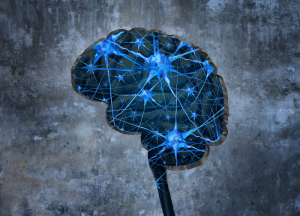por
Lauren Dubinsky, Senior Reporter | July 12, 2016

Does it have any
adverse health effects?
Gadolinium has recently come under scrutiny because it's known to accumulate in the brain, but it's not clear whether it can lead to neurological issues. Researchers at Western University in Canada uncovered that there is no connection between gadolinium exposure and Parkinson's disease.
"This hypothesis was based on the area of the brain where the gadolinium tends to deposit — these areas control voluntary movement, and other forms of damage to these areas can lead to Parkinsonian symptoms," Dr. Blayne Welk, assistant professor of surgery at Western University, told HCB News. "At this point we don't have enough information to definitively say whether these gadolinium brain deposits are harmful."
Retained gadolinium in the globus pallidi part of the brain is seen as a safety concern — neurotoxic effects have been seen in animals and also in humans when gadolinium is administered intrathecally. Damage to the globus pallidi can lead to Parkinson's symptoms.



Ad Statistics
Times Displayed: 60070
Times Visited: 5271 MIT labs, experts in Multi-Vendor component level repair of: MRI Coils, RF amplifiers, Gradient Amplifiers Contrast Media Injectors. System repairs, sub-assembly repairs, component level repairs, refurbish/calibrate. info@mitlabsusa.com/+1 (305) 470-8013
For the study, the researchers went through databases from Ontario, Canada and sifted out patients older than 66 years who underwent an initial MR exam between April 2003 and March 2013. The patients who were exposed to gadolinium were compared to patients who weren't.
Out of the 246,557 patients in the study, 40.5 percent received at least one dose of gadolinium. Among that group, 81.5 percent underwent one study and 2.5 percent underwent four or more studies.
Parkinson's developed in 1.2 percent of unexposed patients and also 1.2 percent of the patients who were exposed to gadolinium. The researchers concluded that there was no significant connection between gadolinium exposure and Parkinson's.
However, they did note that reports of other symptoms after gadolinium exposure, including pain and cognitive changes, need to be investigated as well. In patients with renal failure, gadolinium can be deposited in the skin and cause a serious condition called nephrogenic systematic fibrosis, said Welk.
In early April,
a literature review published in the Springer journal, BioMetals, called on the FDA to conduct more studies that evaluate the adverse health effects of gadolinium exposure. The authors also called on the scientific community to develop treatments for gadolinium toxicity.
The review stated that blood or urine levels of gadolinium should be measured for patients without kidney diseases who have undergone MR exams with gadolinium-based contrast agents in the past six months.
“This test is available at several labs including the Mayo Clinic,” Moshe Rogosnitzky, lead author of the article, told HCB News. “We should then try to correlate the gadolinium levels with any new symptoms these patients may have developed in recent months.
Despite the safety concerns regarding gadolinium, Welk believes that for the majority of patients, the benefits of MR outweigh the small risks associated with gadolinium.


Daniel Dean
Gadolinium and Parkinsons
January 18, 2019 08:47
you say theres no link! well I had an MRI with omniscan contrast dye back in August of 2001 for headaches due to neck tendons pulled tightly. dr. peterson at Loma Linda university ordered an mri to make sure there were no brain tumors (which was neg.). a month later I started having small problems, like dexterity issues. then at the age of 29 in 2002 I was diagnosed with parkinsons disease by dr. david swope at Loma Linda university in southern cal.. if he would have done a PROVOKED heavy metal lab test he would have seen that I have gadolinium poisoning. My lab work from last year shows extremely high levels of gadolinium and lead in my tissue (provoked urine test)
to rate and post a comment